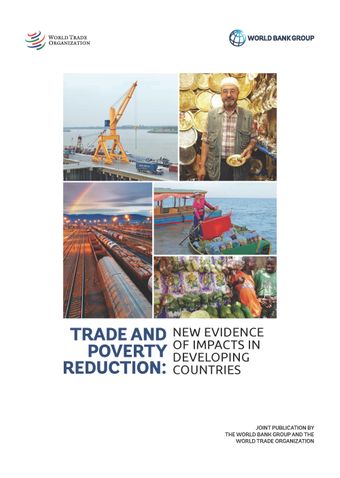- Home
- Books
- Trade and Poverty Reduction
- Chapter
Exporting, Importing and Wages in Africa: Evidence from Matched Employer-Employee data

- De : World Trade Organization
- Source: Trade and Poverty Reduction , pp 58-83
- Publication Date: décembre 2018
- DOI: https://doi.org/10.30875/cae8b9c9-en
- Langue : Anglais
The economic and social development of the African continent has been on the agenda of policy makers and the international community for decades. With over a billion inhabitants and the fastest growing population worldwide, the African market presents an enormous potential. Despite remarkable economic growth rates, however, many countries on the continent struggle to translate this potential into significant improvements in socio-economic indicators. International trade is considered by many as one of the main contributors to reductions in poverty and the improvement of livelihoods (Dollar and Kraay, 2004; Le Goff and Singh, 2014). This stance has been adopted in global policy making, with trade forming an integral part of the 2030 Sustainable Development Agenda of the United Nations. The Sustainable Development Goals (SDG) include the objective to double the share of least developed countries’ (LDC) exports in global exports by 2020. Thirty-four of the 48 LDCs are located on the African continent, implying that this endeavor is particularly relevant for Africa.
-
From This Site
/content/books/9789287045225c005dcterms_subject,pub_countryId-contentType:WorkingPaperSeries -contentType:Periodical -contentType:BookSeries -contentType:ReportSeries105


